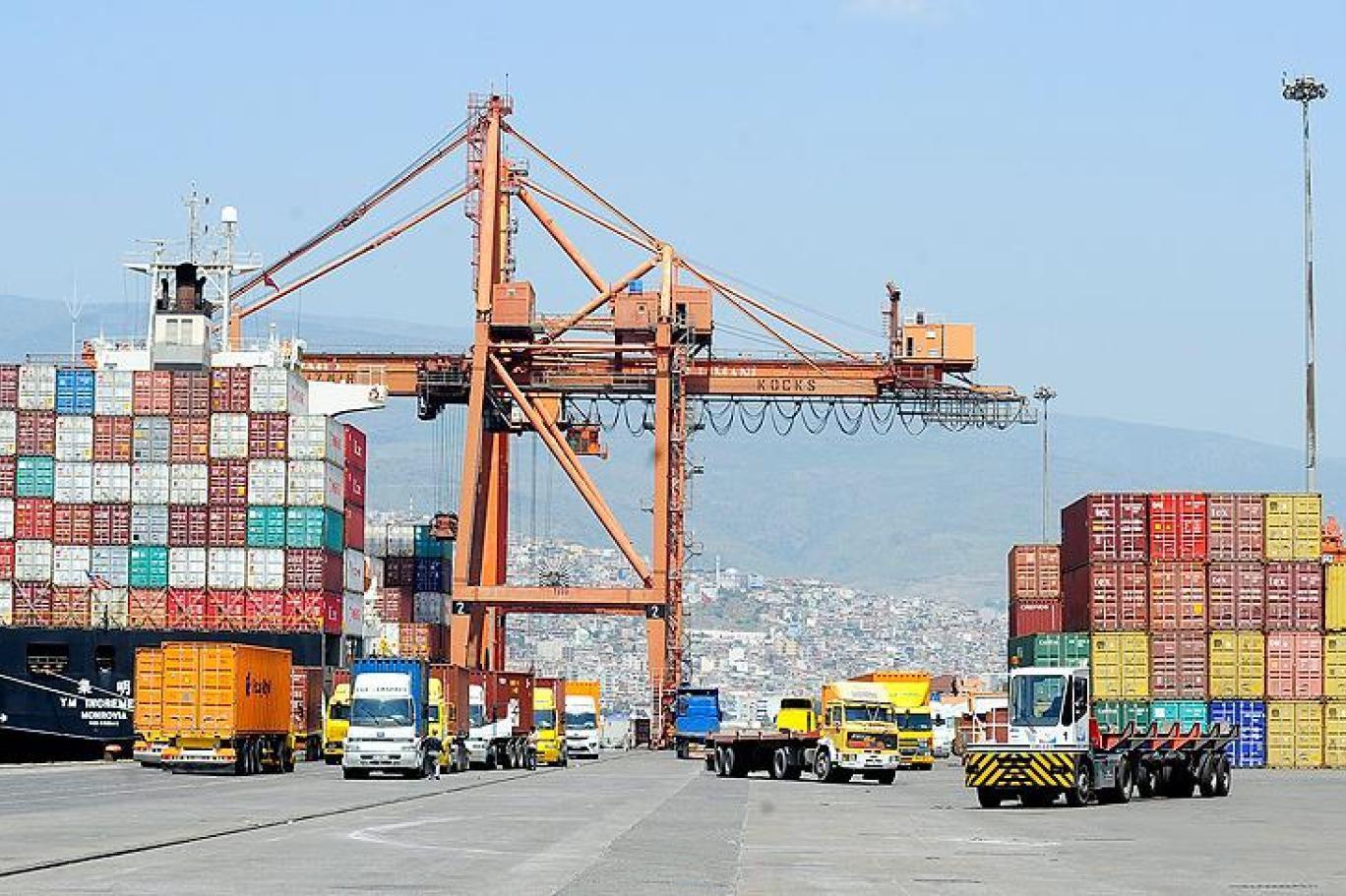
The foreign trade balance posted a deficit of $8.66 billion in August, shrinking 23.1 percent from a year ago, data from the Turkish Statistical Institute (TÜİK) have shown.
Exports grew 1.6 percent year-on-year to $21.6 billion last month.
On a seasonally and calendar-adjusted basis, exports increased by 4.4 percent in August compared with the previous month. The annual growth in exports, however, in August slowed from 7.8 percent recorded in July.
Imports, which rose by 10.5 percent in July, dropped 6.9 percent last month to $30.3 billion.
Energy and gold imports excluded, the foreign trade deficit was $1.93 billion in August, TÜİK said on Sept. 28.
The export/import coverage ratio improved from 65.4 percent in August 2022 to 71.4 percent last month, the data also showed.
Shipments to Germany stood at $1.78 billion in August, making it Türkiye’s largest export market, followed by the U.S. at $1.3 billion.
Iraq and the U.K. bought $1 billion worth of merchandise from Türkiye last month.
The European Union absorbed nearly 40 percent of Türkiye’s exports in August, with shipments to the bloc rising 6.1 percent from a year ago.
Some 42 percent of the country’s exports ($69 billion) went to EU members in January-August.
Türkiye’s imports from China and Russia amounted to $3.83 billion and $3.34 billion, respectively. Germany ranked third at $2.6 billion, while imports from the United Arab Emirates were $1.99 billion.
Last month, consumer goods imports soared 44 percent annually to $4.1 billion. Capital goods imports were up nearly 20 percent to $4.5 billion. Türkiye spent $21.6 billion on imported intermediate goods, down 16.5 percent compared with August 2022.
In the first eight months of 2023, exports contracted by 0.4 percent from the same period of 2022 to $164.8 billion, while imports grew 3.4 percent to $247 billion.
The foreign trade deficit increased by 11.9 percent in January-August to $82.3 billion.
The Trade Ministry this week said that as part of its “distant countries strategy,” it put 18 nations, including China, Australia, Brazil and Japan, on its radar, aiming to increase Türkiye’s exports to those countries to more than $80 billion.
There is a need to diversify Türkiye’s export markets at a time when the global economy and trade face challenges, according to the statement the ministry released.
“Weak global growth is impacting our largest export markets. Particularly in Europe, monetary tightening, coupling with inflation, lower production and weak labor market causes concern of recession,” the ministry said.